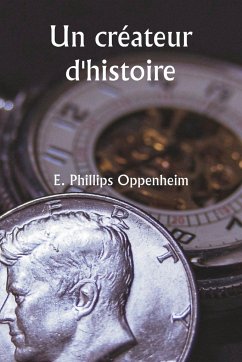Ce livre classique a été initialement publié il y a des décennies sous le titre "A Maker of History" . Il a maintenant été traduit par Writat en langue française pour leurs lecteurs francophones. Chez Writat, nous sommes passionnés par la préservation du patrimoine littéraire du passé. Nous avons traduit ce livre en français afin que les générations présentes et futures puissent le lire et le conserver.
Bitte wählen Sie Ihr Anliegen aus.
Rechnungen
Retourenschein anfordern
Bestellstatus
Storno









